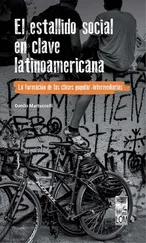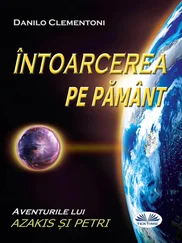“Corpses don’t have an age,” Žana said, and then Marija felt the blood beginning to circulate slowly beneath her skin, rising up through the capillaries to the surface, all over her buttocks and her thighs, and then she stretched out her legs and sat up in the straw, leaning her shoulder blades against the cold wall of the barracks. She wiped her fingers on a damp rag and began groping about in the dark for a dry piece of linen to make a pad.
“You met her before I did,” she said, locating her underwear in the gloom beneath the fingers of her right hand, and then she put the folded portion of linen into place between her legs and slid her underwear back up.
“Yes,” said Žana. “She was one of those. You know. One of the chosen ones. Along the way she tried to flee. They gave her a thorough beating. Then she got sick and instead of taking her into the Lebensborn they dispatched her here. What saved her was the fact that she played the cello. I heard that the overseer who beat her was punished. The Germans regretted that a flower like her should end up on the inside. .”
Then the straw beneath Žana began to rustle and Marija turned in her direction, following the narrow band of light; she was still lying on her stomach with the straw between her teeth and her eyes fixed on the crack: she was following the movement of the floodlight’s beam along the barracks and wire.
The field guns, with their ever-faster salvos in the distance, suddenly fell silent.
“If Polja had lived—” Marija said, and though she wanted to tell the truth: if she had stayed alive till two, in other words until the point at which Maks was going to give the sign, and if she had been left alone in the barracks (since, being so sick, she couldn’t go with Žana and Marija) — tomorrow they would have crammed her into a truck anyway and taken her off to the gas chamber, she just couldn’t let it end that way for her, so she said: “—she would have been in Odessa in a month or so. . I believe she was from Odessa”; and Žana said:
“Or maybe if she had just lived a few more hours.”
“ They won’t take any risks ,” Marija said. “That Maks is a damned clever fellow.”
“Yes,” said Žana. “Damned clever,” and then she asked, “Have you ever seen him? Maks, that is?”
“No,” Marija said: “Never. . though actually—” But she couldn’t finish her thought, and Marija should have said We’ll get through this or We’ll make it or something else just not They won’t take any risks . And even though she’d stopped with that, and had fallen silent, she began to get clumsily entangled in that heavy net of men, thinking that in terms of needlepoint it was a ridiculous pattern and with the delicate, finely pointed needle of a woman’s passivity she began poking into its empty spaces until she found herself wrapped up in the tough, thick threading of the nets and had to call for help from more men, first from Jakob — in her mind — and then, aloud and with desperate entreaty in her voice, that other man too, Maks. The Maks she had still never seen but who had existed for her for months now as a synonym for salvation, the incarnation of masculine god-agency. That’s why she’d wanted to say I’ve known him as long as I’ve known Jakob , but she changed her mind, for she remembered that the true sense of Žana’s question lay elsewhere. At least it seemed that way to her. Žana simply wanted to point out that she herself (Marija) wasn’t in any condition to do for herself or for her child anything other than submit to the fate that she identified with Jakob, and that that Maks (and she always said “that Maks” herself) was merely the executor of the will of fate-Jakob, and wasn’t even a concrete person, with no face and shoulders, no hairy chest and great, powerful hands. Instead: an unknown agent, the hand of God, or the devil himself, or precisely some invisible and unknown powerful third thing that works miracles: he flips some unseen lever or cuts a wire and darkness breaks in. . Like that night in the corridor when she was coming out of Jakob’s room. And before that, too. Ten minutes earlier: all at once the darkness fell. And it was like this:
When Dr. Nietzsche halted in front of Jakob’s door he screamed: “These working conditions are impossible! Every five minutes, that power plant! This smells like sabotage to me ,” and then Jakob covered her mouth so she wouldn’t cry out, and then he pushed her, or actually placed her in the cabinet like she was an object and locked her in. But before he shut the door:
“That was Maks,” he said. “He shorted out the fuses.”
This happened several months ago. Actually more than half a year back. And that was the first time she’d heard of Maks.
She sat on Jakob’s bed with her legs crossed (blood running down her thighs and along her bottom) and she felt unequal to any new task.
“Jakob, something is going to happen,” she said. “I have a feeling that something is going to happen.”
And he asked, “What could happen?”
“I don’t know,” she said. “I just feel like something is going to happen. Maybe someone will find us here”; and then he said:
“Nobody ever comes into my room. Now what would they be looking for in my room?”
“Still, Jakob,” she said. “I’m afraid.”
But she didn’t budge. All she did was say again: “I have a feeling that something could happen,” and at that moment she thought about how Aunt Lela had said that this was as important a thing in a woman’s life as giving birth, and she thought about the blood she was leaving on Jakob’s sheet and about his being a doctor and how he would know what was happening to her. Back then she should have asked Aunt Lela, Is it possible for it to happen and for the man not to notice anything?
Then he said: “Should I turn out the light?”; and she:
“No. Stay with me.”
“If you’re afraid,” he said. Then he stopped.
“I’m not,” she said. “Only you can’t take your hand away.” Then more: “I love looking at that lampshade. It’s been a year since I saw a lamp with a shade.” And again: “I have to go. It’s high time I left,” but still she did nothing that would indicate she was leaving; made not a single movement that would show that she was leaving. She wasn’t capable of making such a motion, although she was no longer lying down (immediately afterward she had stood up and put on her underwear and her dress). Jakob sat at her right side, leaning against the steel frame of the bed. And she just sat there like that, feeling the blood fill up the impression they had made in the straw mattress with their combined weight.
“We’ve known each other for two months already,” she said. “I never could have imagined. .”
“Who could say,” he said. “To me it seems we’ve known each other for a very long time: for a long while before all this.”
“Today’s it’s exactly eight weeks and a day,” she said. “And one night extra. Doesn’t that seem like a short time to you. .?”
“To me it feels like we’ve known each other forever,” he said. “But never mind that now. This night isn’t over yet,” and she still couldn’t move and she seemed to hear a noise in the corridor and all she could do was cling to him and whisper “Jakob!” and at that same time she realized that he was no longer at her side but somehow here and there by the door listening to the thumping of steps audible right outside, and she felt herself losing the ability to speak on account of fear, and before she could snap out of it and think This was perhaps my last night with Jakob, my first and last , before she was in a position to think or say or do anything definite, Jakob was already holding his cupped hand over her mouth. And she was already in the cabinet and realized that its doors were creaking behind her as they closed when she sensed Jakob’s face on hers and heard his breathless whisper: “That’s Maks,” and before she had time to be astonished or at least ask Maks who? she nearly simultaneously heard a key start to turn on the outside of the cabinet door and subsequently Jakob’s Ja, ja and his rapidly receding steps.
Читать дальше












